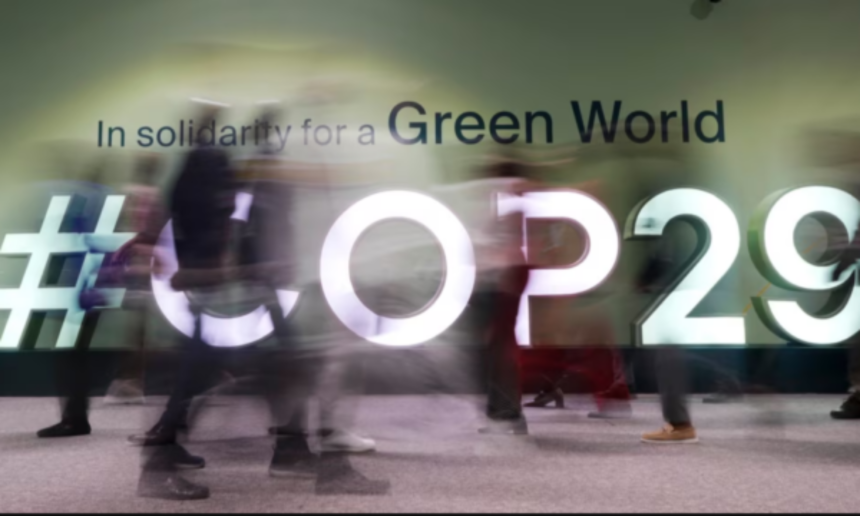Dozens of world leaders attending the annual United Nations Climate Conference in Azerbaijan have expressed concern about the consequences of climate change. Beyond speeches on extreme weather, participants have secured commitments from major banks to provide more loans to developing countries to address the impacts of global warming.
Leaders of small island nations have complained that they are facing the greatest consequences of climate change. They argue that even aid from developed nations, which are the main contributors to climate change, is too small and delayed. The Prime Minister of Grenada, Dickon Mitchell, spoke in detail about a prolonged drought earlier this year, while now his country is facing a Category 5 hurricane. The Prime Minister of Niue, an island nation near Fiji and New Zealand, on the other side of the globe, said that climate change is the greatest threat his country faces.
“We are failing to meet the goal of not allowing temperatures to rise above 1.5 degrees Celsius. For my country and the Pacific region, climate change is the greatest threat we are facing,” said Mr. Tagelagi.
Climate change has made the Earth over 1.5 degrees Celsius hotter this year compared to the pre-industrial average. The 1.5-degree Celsius threshold was set during the 2015 Paris Conference. One of the key commitments made was to prevent temperatures from rising beyond 1.5 degrees Celsius by reducing emissions from fossil fuels to zero by 2050. Scientists attending the conference in Baku say this is not happening.
“Emissions from fossil fuels increased again in 2024, and we are not doing enough globally to reduce them,” says Mike O’Sullivan, a scientist from the University of Exeter.
“If we continue with current emission levels, permanent temperature rise beyond 1.5 degrees Celsius will happen within six years. A massive reduction in emissions is needed,” says Stephen Sitch, an environmental scientist.
Scientists acknowledged that the United States and Europe have reduced emissions by investing more in renewable energy.
Speaking on behalf of the United States, climate envoy John Podesta said that the consequences of inaction are already clear, recalling the deadly hurricanes, Helene and Milton, in the United States, as well as extreme weather in other parts of the world.
“We have a clear choice between a safer, cleaner future, and a dirtier, more dangerous, and more costly future. We know what needs to be done. Let’s get to work and finish it,” said Mr. Podesta.
Participants at the meeting are seeking to reach an agreement on funds that developed countries should share with developing nations to help them increase clean energy production. An initial version of this agreement was released on Wednesday, but it has not yet been finalized.
A group of lenders, including the World Bank, announced on Tuesday that they will increase the funds that poor countries can borrow to $120 billion by 2030. This represents an increase of approximately 60% compared to the amount allocated a year ago. /VOA







